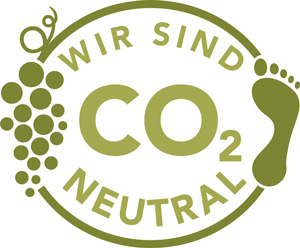Climate-neutral
WHY
Why climate-neutral?
Climate change has been the greatest challenge, humanity must face since the end of the ice age. Globally, there is consensus, that the man-made climate change must be limited.
The success of emission reductions depends very much on the voluntary and consistent action of the economy in the industrialized countries. So, we are ready to take responsibility for the world that we leave to our children and grandchildren.
Greenhouse gases are evenly distributed in the atmosphere. It is therefore reasonable to avoid emissions where the costs are lowest and the impacts most effective. Projects in developing and emerging countries also help to improve the economic, social and ecological situation.
So, why are we doing this? Because we understand what the IPCC (Intergovernmental Panel on Climate Change) conclusively explains. Avoiding emissions only costs approximately 0.6 % of the annual added value, while eliminating the damage costs much more if we keep on going as we did before.
THE PATH
How does one become climate-neutral?
In cooperation with the Raiffeisen Umweltgesellschaft (environmental association) we determined the carbon footprint of our company Bioweinbau Claudia & Dieter Schnabl.
The result in tons of CO2-equivalent pollutants per year is offset by the purchase of so-called climate protection certificates.
This makes us one of the first organic winegrowers to produce in a climate-neutral manner and to voluntarily offset emissions in accordance with the Kyoto Protocol.
We believe in the future of renewable energies and the opportunity for sustainable growth, especially in developing countries. That is why we have invested in a solar thermal project in India and a hydropower plant in Uganda.
For the compensation of our greenhouse gases, we have received the “climate neutral company” award.
EMISSION CERTIFICATES
How are emission certificates generated?
The greenhouse effect is a global phenomenon as the distribution of greenhouse gases in the atmosphere is somewhat the same. Therefore, it does not matter where greenhouse gases are saved or stored in the world.
The Kyoto Protocol, which is binding under international law, demands that so-called climate protection projects, that avoid or save greenhouse gas emissions, should take place where they are most economical. Accordingly, there are many projects in emerging and developing countries, because the potential for savings through new technologies is still very high and they can be used much more cost-effectively. In addition, the conditions for renewable energy systems (sun, wind, water and biomass) are often significantly more beneficial there.
Emissions trading also makes a significant contribution to the transfer of clean technologies to emerging and developing countries and to the sustainable economic, ecological and social development of the region and to the achievement of the United Nations’ sustainability goals.
SUSTAINABILITY
Sustainability and benefits of climate neutrality. Some thoughts on climate neutrality!
- Through organic farming, sustainability has been lived for decades!
- Well-considered cultivation of vineyards, green rows of vineyards, management of the water balance in the vineyard
- Wherever possible, green electricity is used!
- Contribution to the goals of the government, the European Union and the United Nations’ Sustainable Development Goals (SDG)
- Raising awareness among employees, suppliers and customers regarding the handling of finite resources. This positively changes the way energy and other resources are used in the company and in people’s everyday lives.



